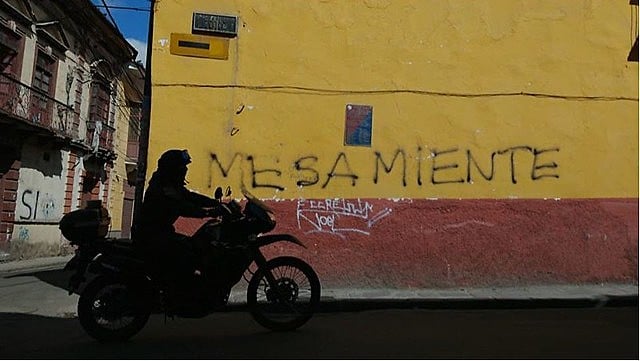Bolivian voters are witnessing a phenomenon that is just as the one that happened in Brazil during the 2018 presidential elections: a fake news tsunami. As the Oct. 20 election approaches in Bolivia, rumors intensify as more people are talking about them.
In La Paz or Santa Cruz de la Sierra, it’s easy to spot someone with a phone in their hand showing their friends a “meme” or some piece of extraordinary news that arguably could change the course of the elections.
::What you need to know about the upcoming elections in Bolivia::
The primary target of this online smear campaign is the current president of Bolivia and front-runner in the race, Evo Morales. The latest rumors claim that he allegedly has millions of dollars hidden in a bank at the Vatican or had children out of wedlock with minors.
A quick online search shows that these rumors also spread during the last election process, and they have been proved to be false. But in the WhatsApp era, that is not important.
This week, Brasil de Fato spoke with former guerrilla fighter Raul García Linera, the brother of the vice president of Bolivia, Álvaro García Linera, who is also oftentimes the target of fake news. Although he finds the lies about his past funny, he said he is concerned and acknowledges that the Bolivian government has not been able to fight this fast-spreading virus.
Bolivia has a population of around 11 million inhabitants and more than 10 million fixed and mobile internet access points, which makes this election race different from all previous voting processes.
It is not hard to notice that most fake news pieces are right-wing. Out on the streets, it’s not unusual to hear talks about how Bolivia “could turn into a Venezuela,” referring to the economic and political crisis caused by the economic sanctions the United States has imposed against the country. Meanwhile, the same voters don’t seem to be concerned about “becoming an Argentina,” a country that is run by Mauricio Macri, a president who claims to be an economic liberal, but is finishing his term with no signs of economic recovery.




